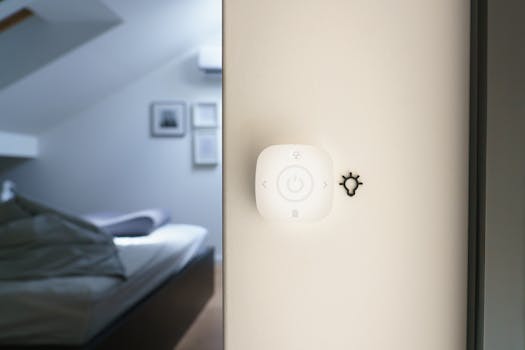
Home Automation in 2025: The Smart Home Ecosystem
Home Automation in 2025: The Smart Home Ecosystem is revolutionizing the way we live, work, and interact with our living spaces. With the integration of artificial intelligence, Internet of Things (IoT), and Machine Learning (ML), home automation systems are becoming increasingly sophisticated, providing unparalleled comfort, convenience, and energy efficiency.
Introduction to Home Automation

Home automation refers to the use of technology to control and monitor various aspects of a home, including lighting, temperature, security, entertainment, and appliances. The goal of home automation is to create a seamless and efficient living experience, where all devices and systems work together in harmony to enhance the quality of life.
In 2025, home automation is no longer a luxury, but a necessity. With the increasing demand for smart homes, manufacturers are developing innovative solutions that cater to the needs of homeowners, from affordable and easy-to-install systems to complex and customized integrations.
Key Components of a Smart Home Ecosystem

A smart home ecosystem consists of several key components, including:
- Hub or Control Center: The central unit that connects and controls all devices and systems in the home.
- Sensors and Detectors: Devices that monitor and detect changes in the environment, such as temperature, humidity, and motion.
- Actuators and Effectors: Devices that perform specific actions, such as turning lights on/off, adjusting thermostats, and locking/unlocking doors.
- Communication Protocols: Standards that enable devices to communicate with each other, such as Wi-Fi, Bluetooth, and Zigbee.
These components work together to create a robust and efficient smart home ecosystem, enabling homeowners to control and monitor their living space with ease.
Benefits of Home Automation

The benefits of home automation are numerous, including:
- Energy Efficiency: Automated systems can optimize energy consumption, reducing waste and lowering utility bills.
- Convenience and Comfort: Home automation provides unparalleled convenience and comfort, allowing homeowners to control their living space with ease.
- Enhanced Security: Automated security systems can detect and respond to potential threats, providing an additional layer of protection for homeowners and their families.
- Increased Property Value: A smart home ecosystem can increase property value, making it more attractive to potential buyers.
As home automation continues to evolve, we can expect to see even more innovative solutions and benefits, transforming the way we live and interact with our living spaces.
Conclusion

In conclusion, Home Automation in 2025: The Smart Home Ecosystem is a rapidly evolving field, offering unparalleled comfort, convenience, and energy efficiency. As technology continues to advance, we can expect to see even more innovative solutions and benefits, transforming the way we live and interact with our living spaces. Whether you’re a homeowner, builder, or developer, understanding the concept of home automation and its applications is crucial for creating a seamless and efficient living experience.





